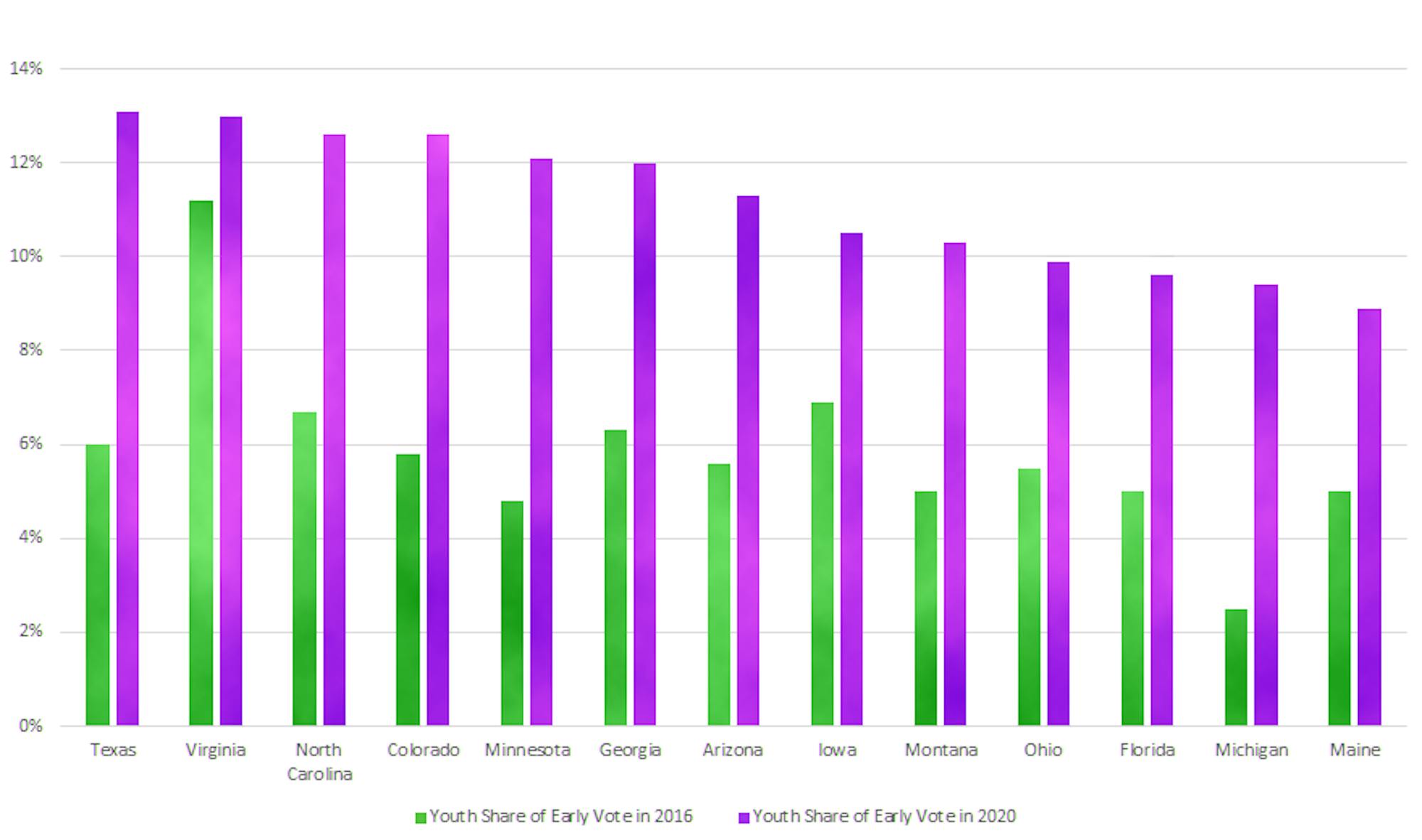The Center for Information and Research on Civic Learning & Engagement (CIRCLE)released a study on Oct. 30 that recorded the number of young people using early voting to cast their ballots in 14 states that are key to the 2020 presidential election.
Rey Junco, a senior researcher at CIRCLE, described some of the organization's goals for thestudy.
“One of [CIRCLE’s] values is focusing on youth who are typically underrepresented in political and civic processes. So we are really interested in promoting diverse voices and promoting equal and just outcomes,” he said.
The 14 states in the study have been ranked by CIRCLE’s Youth Electoral Significance Index (YESI), which takes into account predicted electoral competitiveness and past youth voter engagement, among other factors, to determine young voters’ possible impact.
Junco described CIRCLE’s findings and explained how the pandemic has caused a large number of youth voters to vote earlier.
“There has been a phenomenal increase in early votes cast by young people. Of course, there is the issue of the coronavirus right now and that is an impetus for people engaging in early voting," Junco said. "Young people have now realized, ‘I can do early voting’ and they might take more advantage of that in the future."
The study also indicated that youth civic engagement initiatives have encouraged a rise in youth voter participation. Young people have attended marches, helped peers and family register to vote and integrated more political discussion into their everyday lives.
The major increase in youth early voting participation in the key states has already surpassed the same margin in the 2016 election, a sign that youth votes will have a large impact on the outcome of the election.
Peter de Guzman, a research program coordinator at CIRCLE, described the importance of engaging young people.
"Having more attention and more people investing money contacting young people is really positive," de Guzman said. "Especially [for] young people, youth of color ... the rural youth, that are less likely to be contacted because people don't think they're going to vote."
According to the study, youth participate in early voting closer to the election than any other age demographic. In 2016, half of the early votes cast by young people arrived within six days of Election Day, while only a quarter of early votes cast by the 65-plus electorate arrived in the same time frame.
Junco explained some of the benefits of early voting.
"Barriers to voting include work schedules for young people or needing to take care of other people," Junco said. "[Early voting] gives young people the opportunity to be able to vote, and not, for instance, have to take time off of work."
Sophomore Aidan Barg said he faced challenges when attempting to cast his absentee ballot for his home state of Arizona, which isranked on YESI as the sixth most important state for the presidential race.
“I changed my address on the voter registration page for Arizona, and when I updated my address, it took away my early voting status," Barg said. "I didn’t realize changing my address would remove me from the Permanent Early Voter List."
Barg also emphasized how the difficulty of navigating voting websites may discourage other voters.
“Why would you waste 45 minutes navigating this really confusing website, especially if it was somebody that didn’t care that much about voting. You would spend 10 minutes on the website and if it’s not clear and easy to fill out, then it’s going to throw off a lot of people,” Barg said.
De Guzman described how JumboVote and the Jonathan M. Tisch College of Civic Life work to overcome barriers to voting and simplify the process by offering notary services.
“Some states have witness requirements [but] one thing JumboVote has been doing, which we did in 2018 as well, is that we have Tisch College staff members available to notarize student absentee ballots from a state that requires that," he said.
Junco believes youth votes will dramatically affect the results of the presidential election. He explained that CIRCLE aims to spread awareness of the impact young people have on the electoral process, as the media often portrays the opposite.
“One of the things we like to see is when youth do make an impact, [we] like [to] highlight that because the media narrative is usually ‘Youth don’t matter, youth don’t vote,'” Junco said.






